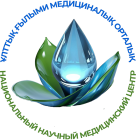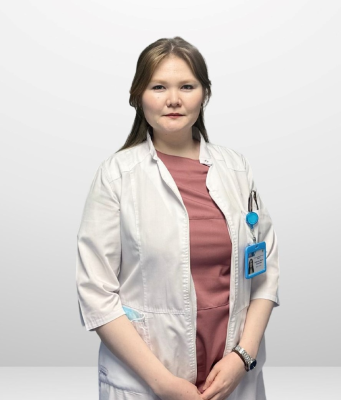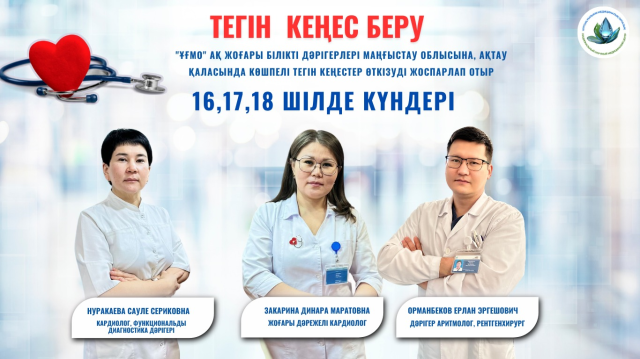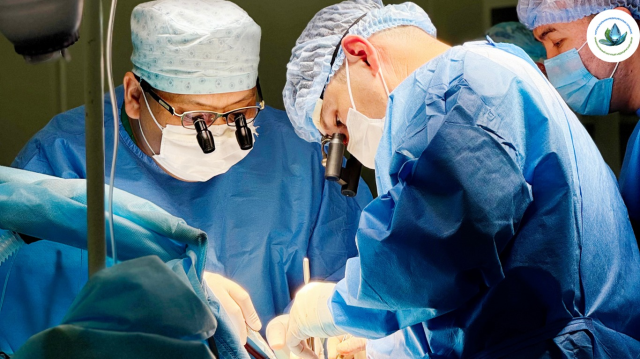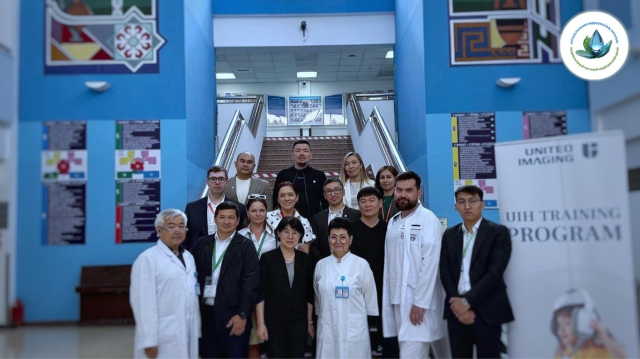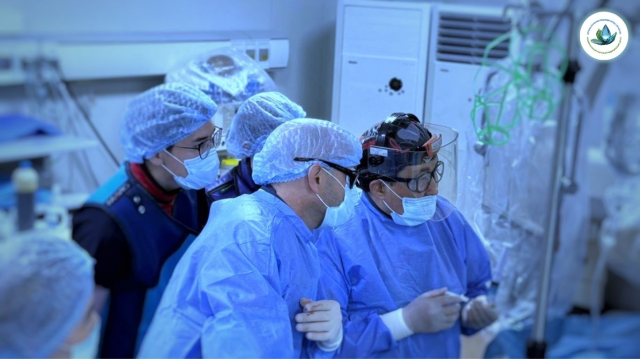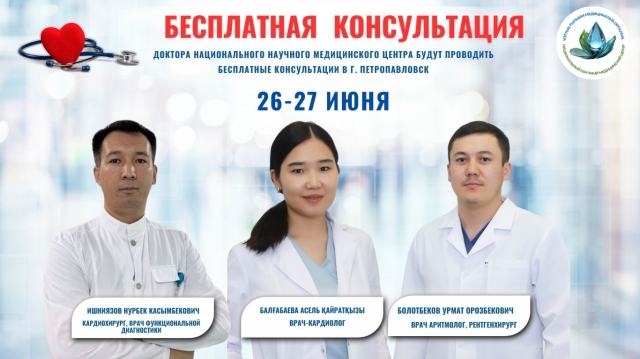Central Research Laboratory (CRL)
All the brilliant achievements of mankind in the field of physics, chemistry, and molecular biology are embodied in technologies used for laboratory diagnostics of diseases at the molecular and cellular levels.
Today, the delivery of tests is the most important stage of diagnosis. Special studies make it possible to draw up a clear picture of the disease, prescribe optimal treatment, and select effective drugs. Timely delivery of tests is a way to track changes in the body, which makes it possible to adjust therapy and exclude the absence of complications.
Our Central Research Laboratory uses innovative laboratory technologies from leading global manufacturers: flow cytofluorometry (Becton Dickinson, Sysmex), electroimmune chemiluminescence (Roche, Abbott), real-time PCR (BioRad, QIAGEN), immunochromatography (Roche), diagnosis of autoimmune diseases (automatic indirect immune fluorescence system "Aklides"), molecular genetic studies (NGS sequencing), etc.
Such modern and high-tech areas as the molecular genetic laboratory and the Center for Autoimmune Diseases operate on the basis of our Central Research Institute.
The key to the effectiveness of the new Center for Autoimmune Diseases is the use of modern international standards and recommendations in the practical work of the laboratory, which makes it possible to achieve high information content of the analysis and correct diagnosis in the early stages of the disease.
Currently, the department of Molecular genetics laboratory has implemented the method of DNA chips, sequencing and emulsion PCR, which significantly expands the possibilities of diagnosis. These techniques make it possible to analyze about 1,000 functionally significant genes simultaneously and exclude more than 250 severe genetic syndromes that cannot be detected by any other standard method.
To date, these methods are the most modern in molecular biology and allow solving a number of problems. In particular, it is only with the help of these methods that it is possible to conduct research on mutations of an oncological nature, identify genetic predispositions to certain diseases, and compile a mutational profile of the patient.
The use of molecular genetic diagnostics in oncology is of particular relevance today, as it makes it possible to choose the most optimal treatment regimens depending on the molecular profile of the tumor, allows you to apply a personalized approach, as well as timely identify hereditary predisposition to oncological diseases for their timely prevention.
The research of our molecular genetic laboratory will help to improve the effectiveness of the treatment of patients in our country.
Every year, the Central Research Laboratory performs more than 1.5 million studies. More than 100 complex, rare analyses have been implemented for scientific purposes. The external quality control allows us to compare the work of our laboratory with the best laboratories in the world. We have more than 70 international certificates of external quality assessment, which have been confirmed by the high level of our research since 2006.
In our laboratory, you can take any type of tests, get qualified advice on preparing for the study and interpreting the results obtained
Medical staff:
The Central Research Institute employs highly qualified specialists, including a candidate of medical sciences, doctors of the highest qualification category. All laboratory assistants have the highest category. We learn by ourselves and share our experience, train our colleagues from all regions of Kazakhstan. The staff of the Central Research Institute took part in more than 70 professional forums, published more than 100 printed works, and participated in the execution of 14 scientific projects.
Analyses:
The following complex, rare types of laboratory tests provided by the Central Research Institute of JSC "NNMC" are performed:
- biochemical: metabolites, enzymes, electrolytes, specific proteins, lipids, protein electrophoresis;
- hemostasis indicators: coagulation factors, screening tests, antibodies, thrombosis markers, platelet hemostasis indicators;
- immunological: phenotyping of lymphocytes, cell cultures, tissue homogenates;
- enzyme immunoassay: hormones, specific proteins, infectious antigens and antibodies to them, autoantibodies, markers of parasitic diseases, cancer markers, growth factors, interleukins, vitamins and other biologically active molecules
- hematological and general clinical studies;
- PCR diagnostics of viral, microbial, fungal diseases;
- diagnosis of autoimmune diseases by indirect immunofluorescence reaction: (autoimmune rheumatoid diseases, liver, kidney diseases, endocrinopathy, skin lesions, myasthenic syndrome, systemic sclerosis, etc.)
- molecular genetic studies: full-exome sequencing, oncological gene mutations (52 genes, 161 genes, BRCA1, BRCA2), oncological mutations in blood diseases.
Citizens of the Republic of Kazakhstan, regardless of their region of residence, as well as residents of near and far abroad, can undergo modern laboratory tests in our laboratory of the Central Research Institute.
Studies in all departments of our laboratory undergo a monthly external quality control assessment of RIQAS, BIO-RAD, QCMD, INSTAND, WHO, etc. The percentage of compliance of laboratory studies with the External Quality Assessment in 2022 was 96%!
Dear patients of our center, below are the rules for preparing for certain types of laboratory tests.
Please note that in order to obtain an accurate, reliable and timely result, it is very important to eliminate errors at the preanalytical stage.
Factors affecting the laboratory result:
- Medications (laboratory tests have different sensitivity to the effects of drugs, most often aspirin–containing drugs, NSAIDs, hormones should be avoided)
- Food intake (direct effect – increased glucose and lipid metabolism, indirect effect - hormone production in response to food intake, changes in sample turbidity affecting the analytical process)
- Alcohol (changes in enzymatic metabolism)
- Physical activity and stress (possible increase in enzymes, glucose, urea, protein administration in urine, changes in hormone levels)
- Smoking (effect on hemostasis research)
- Physiotherapy and instrumental types of research (temporary change in some laboratory tests
- Phases of the menstrual cycle in women (before the study, check with your doctor the optimal days for taking blood for studies of FSH, LH, prolactin, progesterone, estradiol)
- Time of day when taking blood (there are daily fluctuations in many hormonal and biochemical parameters, expressed to a greater or lesser extent for different indicators. The "norm" is the data obtained by taking blood in the morning under standard conditions from an average person in a given region).
General rules for preparing for the study
- From 8 to 11 o'clock, on an empty stomach (at least 8 hours and no more than 14 hours of hunger, drink – water, as usual), avoid food overload the day before. The minimum time that does not distort the results is 4-6 hours after the last meal (for emergencies).
- If you are taking any medicine, consult with the doctor who prescribed the study. If possible, cancel the drug and wait 4-5 days as indicated in the instructions.
- Completely eliminate alcohol on the eve of the study!
- Do not smoke for 1 hour before the study.
- Eliminate physical and emotional stress on the eve of the study
- Before taking blood in the treatment room, it is advisable to rest for 10-20 minutes (it is better to sit)
- It is better to donate blood before undergoing physiotherapy, instrumental examination and other instrumental procedures.
- Some special rules in preparation for the study
The name of the test is | 7-11 hours | 12-17 hours | 18-06 hours |
General blood test and coagulogram | recommended | Undesirable | with restrictions |
Blood collection is preferably carried out in the morning on an empty stomach, after 8-14 hours of the night period of hunger (you can drink water), it is permissible in the afternoon 4 hours after a light meal | |||
Biochemical tests | recommended | with restrictions | undesirable |
Strictly on an empty stomach, after a night period of fasting from 8 to 14 hours – glucose, glucose tolerance test, cholesterol, HDL, apolipoproteins, insulin, hormones; Strictly on an empty stomach, after a night period of fasting from 12 to 14 hours – triglycerides, LDL, VLDL. The rest of the tests – during a routine examination, blood collection is preferably carried out in the morning on an empty stomach, after 8-14 hours of the night fasting period (you can drink water), it is permissible in the afternoon 4 hours after a light meal. | |||
Hormones (ACTH, cortisol, aldosterone) | 7-10 hours | undesirable | |
Strictly on an empty stomach after a night period of fasting from 8 to 14 hours. | |||
Parathormone | with restrictions | 10-16 hours | undesirable |
insulin, C-peptide | Recommended | depending on the purpose | undesirable |
Other hormones | Recommended | with restrictions | undesirable |
Blood collection is preferably carried out in the morning on an empty stomach, after 8-14 hours of the night fasting period (you can drink water), it is permissible in the afternoon 4 hours after a light meal. | |||
Cancer markers, autoimmune markers, infection markers | Recommended | Recommended | Recommended |
It is preferable to withstand 4 hours after the last meal, there are no mandatory requirements. | |||
Immunogram | Recommended | with restrictions | undesirable |
Strictly on an empty stomach, after a night period of fasting from 8 to 14 hours. | |||
Preparation for urine examination:
Collecting morning urine:
On the eve of the test, it is recommended not to eat vegetables and fruits that can change the color of urine (beets, carrots, rhubarb, cranberries). Do not take diuretics. Before passing the analysis, it is necessary to carry out a thorough hygienic toilet of the genitals. It is undesirable for women to take urine for analysis during menstruation. For proper examination, at the first morning urination, a small amount of urine (the first 1-2 seconds) should be released into the toilet, and then, without interrupting urination, collect approximately 50 ml of urine in a clean container. If it is not possible to immediately deliver urine to the laboratory, then the container with urine should be stored at 2-80C.
Daily urine collection:
After morning urination, the exact time of the beginning of urine collection (analysis) should be noted. Collect all subsequent urine in a clean container during the day. Store in a cool place. The last portion should be collected 24 hours after the marked time.
It is important to know that different research methods and units of measurement may be used in different laboratories. In order to evaluate the results of the study correctly and to track the dynamics of change, it is necessary to conduct research using the same method, in the same laboratory and take biomaterial at the same time of day!
The Center for Laboratory Diagnostics of Autoimmune Diseases at the National Scientific Medical Center was opened in October 2019. An innovative method of indirect immunofluorescence reaction on the automatic Aklides system (Germany) was introduced for the diagnosis of SARZ (systemic autoimmune rheumatic diseases) according to international standards. Determination of Antinuclear factor (Anticellular antibodies) on HEp-2 cells, this is the "gold standard" for primary SARZ screening (recommendations of ACR ANA Task Force 2008; EULAR EASI 2010, IUIS2014; Russian Clinical Recommendations of Rheumatologists, 2017).
A wide range of analyses are performed:
For paid patients:
1. Antinuclear factor on the HEp-2 cell line (ANF)
2. Determination of high-affinity antibodies to dsDNA on C. Luciliae cells
3. Screening of connective tissue diseases: ANF and ANA-18 immunoblot (dsDNA, Sm, ribosomes, histones, RNP, SS-A 60 kDa, SS-A 52 kDa, SS-B, Scl-70, CENP-B, Jo-1, AMA-M2, f-Actin, PCNA, PMScl-100)
4. Detailed diagnosis of antiphospholipid syndrome: AFS-IgG and IgM immunoblot (10 antigens- cardiolipin, phosphatidylic acid, phosphatidylcholine, phosphatidylethanolamine, phosphatidylglycerol, phosphatidylinositol, phosphatidylserine, annexin V, β2-GP-1 and prothrombin)
5. Examination in SLE: dsDNA on Crithidia luciliae cells, ANF and AFS-IgG and IgM immunoblot (10 antigens: cardiolipin, phosphatidylic acid, phosphatidylcholine, phosphatidylethanolamine, phosphatidylglycerol, phosphatidylinositol, phosphatidylserine, annexin V, β2-GP-1 and prothrombin)
6. Differential diagnosis of rapidly progressive glomerulonephritis and vasculitis: ANCA antibodies (anti-PR3, anti-MPO) and antibodies to the glomerular basement membrane (GBM).
7. Diagnosis of autoimmune kidney damage: ANF HEp2, ANCA antibodies (anti-PR3, anti-MPO) and antibodies to the glomerular basement membrane (GBM).
8. Screening of autoimmune diseases of the gastrointestinal tract: ANF HEp2; determination of antimitochondrial, anti-smooth muscle, antiparietal antibodies (AMA/ASMA/APCA);
9. Immunodot for the differential diagnosis of autoimmune liver diseases, IgG (antibodies to gp210, sp100, LKM1, AMA-M2, SLA, F-actin, LC1)
10. Detailed examination for polyneuritis: (ANF HEp2; ANA-immunoblot (dsDNA, Sm, ribosomes, histones, RNP, SS-A 60 kDa, SS-A 52 kDa, SS-B, Scl-70, CENP-B and Jo-1); Antibodies to IgG and IgM gangliosides (sulfatides, GM1,GM2, GM3, GM4, GD1a, GD1b, GD2, GD3, GQ1b, GT1a, GT1b))
11. Test for the diagnosis of polyneuropathies: Antibodies to IgG and IgM gangliosides (sulfatides, GM1, GM2, GM3, GM4, GD1a, GD1b, GD2, GD3, GQ1b, GT1a, GT1b)
Within the framework of medical insurance under the CSHI:
1. Package "Screening for autoimmune rheumatic diseases" (ANF, ANA-8 immunoblot, dsDNA, cANCA)
2. Package "Screening for autoimmune vasculitis and autoimmune kidney damage" (ANF, ANA-8 immunoblot, ANCA (anti-MPO, anti-PR3, anti-GBM))
3. Package "Screening for autoimmune diseases of the liver and gastrointestinal tract" (ANF, antimitochondrial, antiplatelet, antiparietal antibodies (AMA/ASMA/APCA), antibodies to AMA-M2, gp210, sp100, LKM1, LC1, SLA and F-actin)
4. Package "Screening for antineutrophil cytoplasmic antibodies (ANCA)" (antineutrophil cytoplasmic antibodies IgG (cANCA/pANCA), with the determination of antibodies to Proteinase 3 (PR3, cANCA), Myeloperoxidase (MPO, pANCA) and to the basement membrane of the glomeruli of the kidneys (GBM).
5. Package "Screening for autoimmune endocrinopathy" (ANF, ANA-8 immunoblot, antibodies to IgG islet cells, antibodies to IgG adrenal cortex antigens)
6. Package "Screening for celiac disease and autoimmune gastritis" (ANF, ANA-8 immunoblot; antibodies to endomysium, antibodies to tissue transglutaminase, antibodies to deamidized gliadin peptide; antibodies to internal factor and antigen of lining cells)
7. Package "Screening for autoimmune skin lesions" (ANF, ANA-8 immunoblot, cANCA; antibodies to IgG skin antigens (anti-BM, anti-ICS))
8. Package "Screening for autoimmune myasthenic syndrome" (ANF, ANA-8 immunoblot, IgG antibodies to MuSK)
9. Antiphospholipid Syndrome Screening package (ANF, Total antiphospholipid antibodies (IgG/IgM) to 10 antigens: cardiolipin, phosphatidylic acid, phosphatidylcholine, phosphatidylethanolamine, phosphatidylglycerol, phosphatidylenositol, phosphatidylserine, annexin V, beta2-glycoprotein, prothrombin)
10. Package "Screening for autoimmune polyneuropathies" (ANF, total antibodies to IgM/IgG gangliosides)
We are glad to inform you that our medical center has launched molecular genetic diagnostics, which is performed using the most modern and promising new generation sequencing method (NGS), which is based on decoding fragments of a DNA molecule.
1) Exome sequencing
Complete exome sequencing is a test to identify genetic damage (mutations) in DNA that are the cause of hereditary diseases.
Eczema analysis is the most modern and most detailed molecular genetic analysis of 6110 genes responsible for the development of more than 4,650 known hereditary diseases.
Complete exome sequencing is the sequencing of all protein-coding genes in the genome, allowing the detection of genetic changes leading to rearrangement of protein sequences, which, in turn, can lead to diseases.
Such a study is carried out primarily to confirm the diagnosis of a hereditary disease, determine the prognosis for the patient and his family members, establish carrier status in healthy people when planning pregnancy, and is also widely used in clinical oncology to identify mutations in targeted genes and search for new genetic variants.
• Exomic sequencing (or exome sequencing) allows you to detect genetic changes that lead to changes in protein sequences that lead to the occurrence of many diseases. That is, you can prevent the appearance of diseases or start prevention on time, develop a diagnostic scheme and improve the effectiveness of treatment.
• exome sequencing makes it possible to determine the genetic risks of cancer, cardiovascular, endocrinological and other multifactorial diseases, atherosclerosis, Alzheimer's disease, and also helps to identify markers of athletic success, learn the composition of ethnic groups and the metabolism of certain drugs.
To carry out the study, it is necessary to donate blood from a vein. It is not recommended to eat fatty foods on the day of the test.
The deadline for completing the research is 30 days!
2) A targeted test to identify clinically significant somatic mutations, including SNV, INDEL, chimeric genes and gene copy changes in DNA and RNA samples in 161 genes associated with oncological diseases (Oncomine comprehensive).
This is a comprehensive test aimed at a multi-stage analysis of the molecular features of the tumor. The advantage of the test over other diagnostic tests is the possibility of simultaneous analysis of various types of abnormalities at the DNA and protein levels for a variety of genes that play an important role in tumor development.
This test is designed for the molecular analysis of any type of tumor, including breast cancer. Ovaries, lung, large intestine, stomach, prostate, etc.
This test includes:
- analysis of mutations in genes
- analysis of chromosomal rearrangements
- analysis of protein expression.
According to the results of the test, a conclusion is obtained containing:
- the molecular characteristics of the tumor
- a list of anticancer drugs that may be effective or, conversely, may be ineffective, taking into account the molecular characteristics of the patient's tumor
- targeted therapy
- Chemotherapy
To perform the research, a material is required: a paraffin block or 20 glasses (a tumor sample), preferably with a histological conclusion.
The deadline for completing the research is 30 days!
3) A targeted test to identify clinically significant somatic mutations, chimeric genes and gene copy changes in DNA and RNA samples in 51 genes associated with oncological diseases (Oncomine Focus Assay) (in tissue samples).
This is a comprehensive test aimed at a multi-stage analysis of the molecular features of the tumor. The advantage of the test over other diagnostic tests is the possibility of simultaneous analysis of various types of abnormalities at the DNA and protein levels for a variety of genes that play an important role in tumor development.
This test is designed for the molecular analysis of any type of tumor, including breast cancer. Ovaries, lung, large intestine, stomach, prostate, etc.
This test includes:
- analysis of mutations in genes
- analysis of chromosomal rearrangements
- analysis of protein expression.
To perform the research, a material is required: a paraffin block or 20 glasses (a tumor sample), preferably with a histological conclusion.
The deadline for completing the research is 30 days!
4) Test for the diagnosis of breast cancer (BC) and ovarian cancer (ovarian cancer) (Oncomine BCA Research Assay), complete sequencing of the BRCA1 and BRCA2 genes (whole blood).
The most well-known and significant genes associated with predisposition to breast cancer are BRCA1 and BRCA2 (BReast CAncer gene 1 and BReast CAncer gene 2).
When should I get tested for mutations in the BRCA1 and BRCA2 genes?
- Breast cancer at the age of less than 45 years;
- Breast cancer with a triple negative phenotype at the age of < 60 years;
- The second breast cancer at any age is synchronous, affecting both glands, or metachronous – two or more tumors in one organ;
- Primary multiple cancer:
- breast cancer +epithelial ovarian cancer (including fallopian tube cancer and primary peritoneal cancer) or +exocrine pancreatic cancer at any age;
- Breast cancer in men at any age;
- Burdened family history: the presence of 1-2 degrees of kinship in blood relatives of breast cancer at the age of < 50 years, ovarian cancer, pancreatic cancer, prostate cancer, breast cancer in men;
- the presence of germinal BRCA1 and/or BRCA2 mutations in blood relatives;
- unknown family history in breast cancer patients aged 46-50 years.
To carry out the study, it is necessary to donate blood from a vein. It is not recommended to eat fatty foods on the day of the test.
The deadline for completing the research is 30 days!
